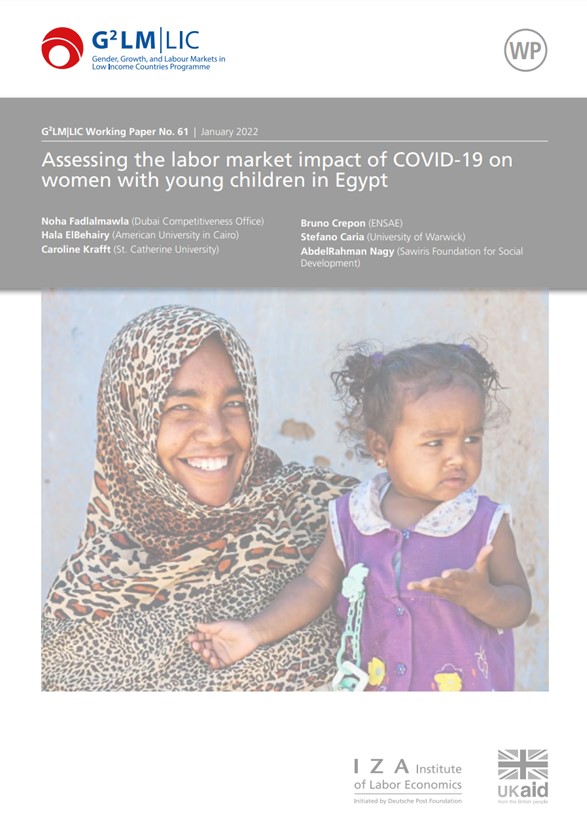
The COVID-19 Pandemic has disrupted many routines, labor and services that have helped to cope with responsibilities in general. Due to gender norms in many developing countries, this has come together with a sudden increase in the responsibilities of women within the household, as COVID closures have obligated families, and especially mothers, to attend childcare themselves for much more extended periods of time. It is therefore clear that this burden hinders the capacity of many mothers to undergo employment work and thus continue being (or become) an active member of the labor force.
In this paper, researchers thus set themselves to analyse the situation of women with young children in Egypt during the Pandemic by assessing a survey where respondents are located in the Greater Cairo area. Initial results indicate that school and nursery closures have increased the burden of women especially, while that of men within the household has remained, on average, considerably less changed. Answers to the questions of the survey also indicate, that due to a lack of information, many women are, for instance, not aware of available nursery services close to their homes and that the current supply comes at a cost that does not match the average willingness to pay for these services. While the employment rate of women in Egypt was already falling before the pandemic, these facts denote how further constraints have been added to women in search for labor force participation. Read the detailed Working Paper here.